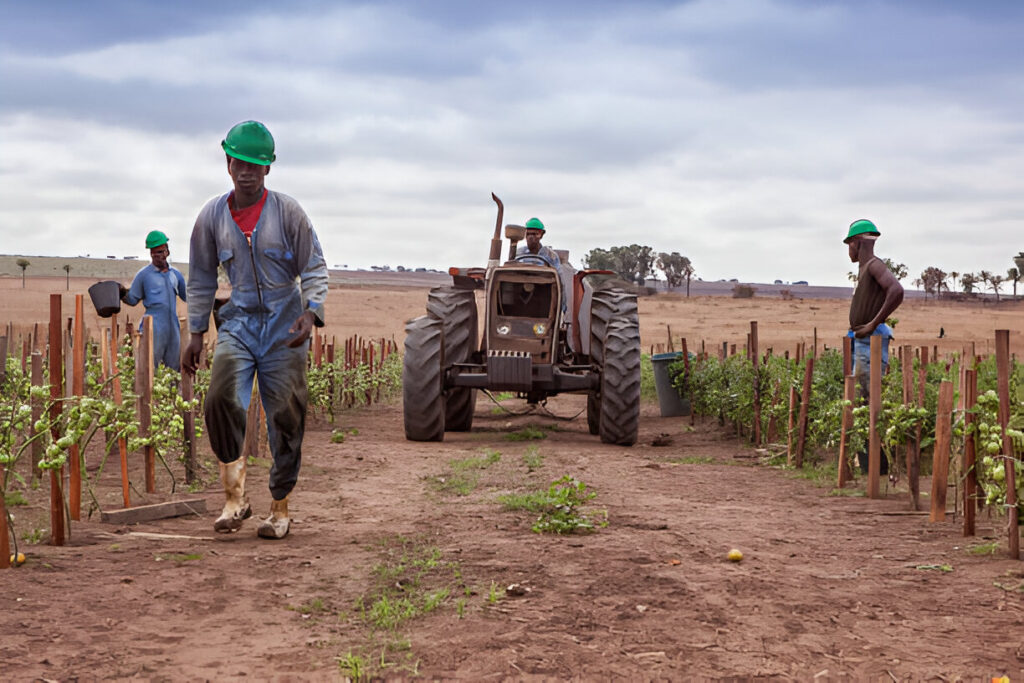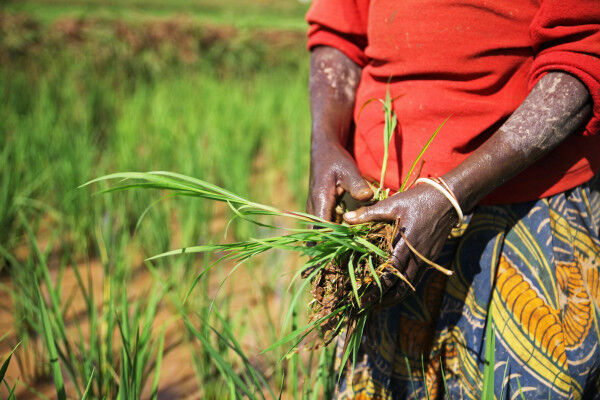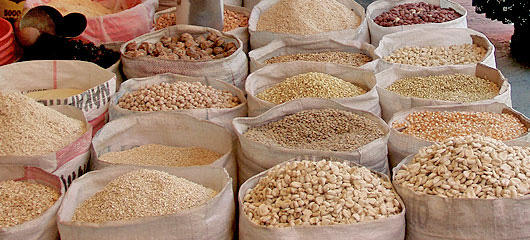
• CBN expresses readiness to support more agribusinesses
As Indonesia, the world’s top producer of palm oil used (in cosmetics, edible oil and a range of other products) banned exports of refined, bleached and deodorised palm oil, Nigeria marginally records expansion with an addition of 10,000 hectares to the cultivated area in Nigeria by JB Farms Limited, an indigenous Nigerian plantation investor.
Ondo State Governor, Mr Rotimi Akeredolu, while inaugurating the farm in Ore area of the state last week, used the opportunity to invite more agro-allied investors, saying, the state had given about 70,000 hectares of land to commercial integrated farms.
Akeredolu also disclosed that an organisation in Asia would set up a centre for oil palm research and seedling production at Olusegun Agagu University of Science and Technology, Okitipupa.
He added: “We are totally committed to the development of the entire oil palm value chain.”
However, a global palm oil production data sourced from IndexMundi by The Guardian ranks Nigeria fifth with 1.4 million metric tonnes yearly.
Indonesia, Malaysia, Thailand and Colombia are ranked first to fourth with 46.5, 19.8, 3.2 and 1.8 million metric tonnes respectively.
Farm Manager, JB Farms, Dr Emmanuel Awelewa, also said with available data, Nigeria has a shortage of about 1.4 million metric tonnes following yearly production of about 1.1million and consumption of about 2.5 million metric tonnes.
The President of Plantation Owners Forum of Nigeria (POFON), Mr Emmanuel Ibru, giving an insight into causes of inadequate production, said apart from land issues, reasonable funding to develop plantations is not available.
“To properly develop one hectare of oil palm plantation requires $4,000 to $5,000 and the gestation period is a minimum of three years,” Ibru had said.
However, to resolve land issue and in line with the Red Gold initiative of the state, Akeredolu approved the 10,000-hectare JB Farms Oil Palm plantation in Ore.
He said: “This is a farm that we are projecting to stand on a total land area of 10,000 hectares and more, and this is just the first one and I believe that it will be more than this. I am saying this because we are on a path to uncover the effects of having this farm.”
Akeredolu urged traditional rulers and individuals in the state to support the government to revitalise the oil palm sector because the growth and development of the sector would be beneficial to people.
“Today, I am super-excited to be a part of this occasion, particularly because, I will be planting the first seedling on this farm. I am really honoured to be a participant and I envision that this establishment will facilitate job creation.
“As of today, we have given about 70,000 hectares to investors; about five or six of them. We also recognise that the tree crops value chain is one of the foremost areas where we have comparative advantages. We are committed to improving and multiplying the production of three crops such as cocoa, oil palm, cashew, rubber and coffee. These strategies are also to improve the means of livelihood of the people of Ondo State.”
The governor said the state needs to develop its internally generated revenue so that it would not become a beggar state and dependent on monthly crude oil resources.
MEANWHILE, the Managing Director and founder of JB Farms, Ajibola Bankole Adebutu, said the integrated farm would employ no fewer than 10,000 direct workers, contribute to the national Gross Domestic Products (GDP) and help close the supply gap amid restriction on forex for food imports.
Adebutu, narrating how the state made it happen, said: “We have been operating out of Ogun State for quite a while and we have been looking for opportunities to expand our operations. We reached out to one or two other states but maybe they saw us as small boys and they were not interested. But one fateful day last year, I had the opportunity to meet Ondo State Governor, Mr Rotimi Akeredolu.
“And, I prepared all my speech and I sat in front of him and I gave the best of speech I have ever given in my life, and when I finished all my story, he said: ‘there is something wrong with your presentation,’ my heart sank and he said, ‘you are the one who wants to come and invest in my state, I should be the one begging you and not you begging me.’”
He commended the government for not underestimating their capacity as an indigenous player and for giving his firm an opportunity.
Adebutu said the farm would be fully planted within five years and a 60-tonne per hour palm processing plant would be built. Steam generating turbines would also be emplaced to produce electricity for the whole estate, using the waste from the oil palm fruits. “So, we intend to be quite eco-friendly,” he said.
Also, the Senior Special Assistant to Ondo State Governor on Agribusiness, Mr Akin Olotu, commended the investor for a bold step in the oil palm investment in the state.
Olotu said: “We all realise the importance of what is happening today, but I am bold to say that Mr. Rotimi Akeredolu, SAN, has brought back the lost glory of Ondo State.
“Several years back, the Okitipupa Oil Palm was the largest in West Africa, but along the line, it went down the drains. We thank God it is coming up, it is not just coming up today, but the ‘Red Gold project’ of Mr. Akeredolu is repositioning Ondo state, not just for now but for the coming years.”
He disclosed that with the integration of oil mills into the farm, the JB Oil Palm plantation would directly and indirectly employ minimum of 40,000 people.
Olotu also disclosed that other six of such projects were ongoing in the state, saying, “I also tell people that it is a pity that we cannot put this up in the heart of Ondo town so that people can see, but a lot has been done and accomplished, the governor has successfully repositioned Ondo State and I make this prophecy that the year is coming when the governor of Ondo State and even the Commissioner for Finance will not go for FEC meetings; they will just ask a director in the ministry to represent us because we would have grown the IGR tremendously.”
He said of the three main sources of edible oil in the global market, oil palm is the most consumed and where the state and the country have comparative advantages.
The Central Bank of Nigeria (CBN) governor, represented by Head, Perennial Crops, Mr Abdul Razak, said JB Farms is the only indigenous oil palm company in Nigeria that partners with the apex bank successfully.
“I can boldly say in CBN, as of today, our greatest partner is JB Farms. We have partnered with them in other areas, especially in Ogun and Cross River States, where they cultivated 4,200 hectares while assessing CBN intervention funds.
“Of course, the loans have been fully repaid, and I can tell you that they are doing passionately and wonderfully well.”
He said apart from employment, corporate social responsibilities like roads, schools and hospitals would be collateral advantages to the host communities.
The CBN representative said: “We can see what is happening in the South-South area where you have so many of such being done and the same thing is being done here.”
To the host communities and royal fathers, he said: “Please, I urge you to give JB Farms that support.”
He encouraged others to emulate JB Farms, saying, “if others can do such, certainly it will be very good not just for us but also for the nation at large. We at CBN are ready to partner with any company or any plantation farm that is ready to do similar to what JB Farms is doing.”
JB Farms started in 1998 with eight hectares of plantation in Iperu, Ogun State, and has scaled up to a commercial farm with 4000 hectares in Odogbolu Local Government Area of Ogun State, and 4200 in Oban, Cross Rivers State.
To industrialise the plantations and maximise the value chain benefits in the industry, a 15-tonne/hour palm oil mill and 12 tonne/hour mills were emplaced in Odogbolu and Oban respectively.
Apart from palm oil plantations and processing, as it is done in well developed economies, palm kernel crushing, extraction and utilization through ancillary value chain activities, such as soup production, have been explored with a 52-expeller palm kernel crushing plant and a four-tonne/hour soap-making plant in Ogun State.
Palm oil is used in foods (68 per cent) such as margarine, chocolate, pizzas, breads and cooking oils; in industrial applications (about 27 per cent) for products such as soaps, detergents, cosmetics and cleaning agents and bioenergy (five per cent) such as biofuels for transport, electricity or heat.
When asked why his interest in oil palm value chain while his contemporaries invest in petroleum marketing, Adebutu explained to The Guardian that: “This is the future. Forget those things, for they are the past. Agriculture is the future.”






